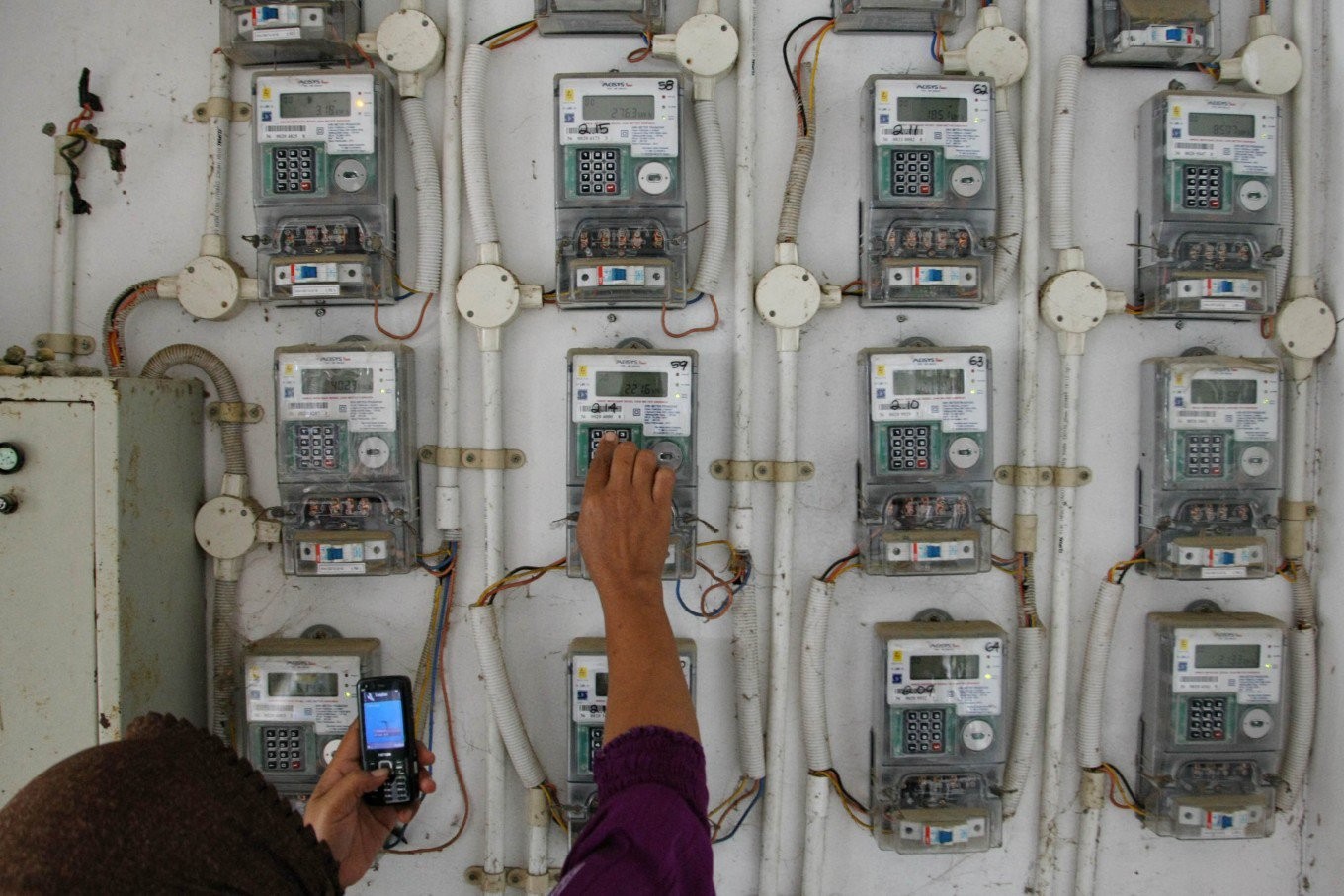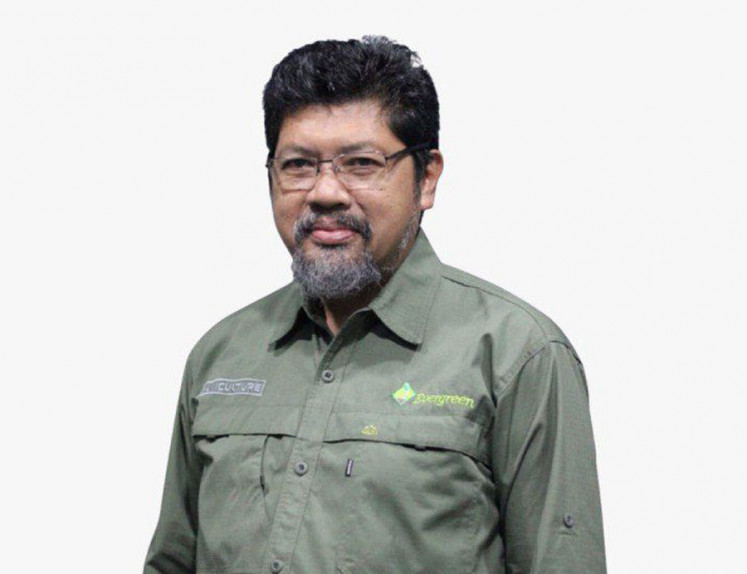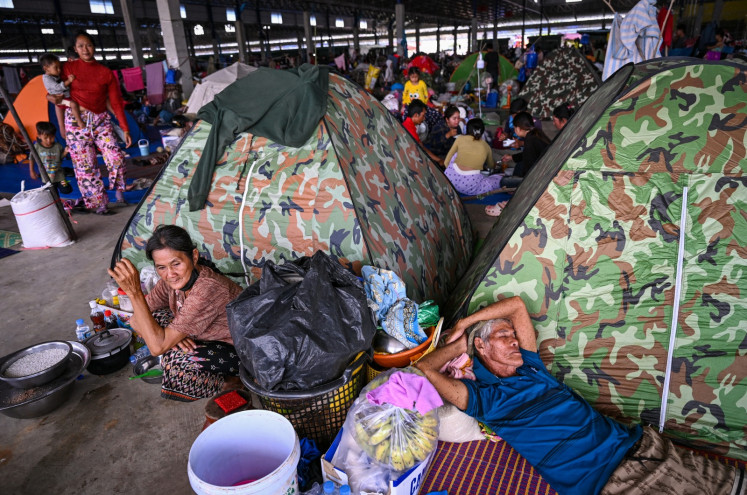Popular Reads
Top Results
Can't find what you're looking for?
View all search resultsPopular Reads
Top Results
Can't find what you're looking for?
View all search resultsSocial entrepreneurship in rural electrification
The cost to distribute electricity in scattered rural areas is very high. A 2013 study found that the private sector and the state electricity company often face major technical and financial obstacles to reach under electrified areas.
Change text size
Gift Premium Articles
to Anyone
T
he Jakarta Post recently reported that Energy and Mineral Resources Minister Ignasius Jonan said his office is drafting a ministerial regulation that would allow private companies to take over the role of the state electricity company PLN to provide power in neglected areas, such as in rural Papua.
This is good news as rural electrification needs more serious attention. Approximately 2,500 villages in Indonesia are still in darkness and most of them are located in Papua.
Yet, some people have started to cast doubt on the ability of the private sector to achieve a profitable model of rural electrification, especially in the geographically challenging Papua.
The cost to distribute electricity in scattered rural areas is very high. A 2013 study found that the private sector and the state electricity company often face major technical and financial obstacles to reach under electrified areas.
The study may have a point. High infrastructure and operational costs may make it difficult for profit-maximizing private companies to offer electricity at a price competitive to PLN’s. What many do not realize is that the solution to this challenge may be found in the innovative business models of a new type of organization that is specifically designed to operate in neglected areas: social enterprises.
A social enterprise is an organization that prioritizes social objectives, yet it can still generate profit. Despite their social focus, they differ from NGOs because they seek some profits, but they differ from other private companies because they do not aim to maximize profits.
The social entrepreneurship approach allows energy sector entrepreneurs to develop business models of rural electrification ventures that maintain a delicate balance between efforts to fulfil the needs of a neglected society and to generate sufficient profits to ensure financial sustainability.
There are at least two social entrepreneurship approaches that may work in the rural electrification context.
The first approach is to follow the success of the micro-hydro social entrepreneurship model adopted by Tri Mumpuni and IBEKA Foundation in Cinta Mekar Village, West Java.
A winner of the UK-based Ashden Social Entrepreneurship Award, the foundation used donations and grants to set up micro-hydro power plants. Furthermore, they maintain sustainable and profitable operations from day-to-day electricity sales — off-grid and on-grid. To expand their social objectives, they also use the surplus to develop cooperatives to increase people’s welfare and levels of education.
Replicating this model may be promising since the potential of small-hydro power generation is widespread in Indonesia. The United Nations estimated that the existing installed capacity of small hydro power plants in Indonesia is 100 megawatts (MW) and the potential is 1,400 MW throughout the country.
The second approach is by using a hybrid social enterprise business model that has been proven successful in other sectors. A successful non-energy sector example is an Australian social enterprise that offers sustainable solutions in water and sanitation sector in developing nations — the Thank You Company.
This social enterprise produces and sells commercially bottled water in Australia to generate revenues and it uses all the sales profits to subsidize the costs of water and sanitation operations in rural areas abroad.
Think of the social enterprise as a holding company that owns the revenue-generating commercial company and other social entities that deliver social objectives elsewhere.
A similar approach and model may be applied in the rural electrification sector: for example, by building commercial power plants in a commercial zone and using most of the profits to cover the costs of delivering rural electrification elsewhere — such as the costs to set up a micro-hydro power plant in a remote place.
This hybrid model allows investors to put their money into the commercial power plant, get a financial return and still let some of the profits to be used to subsidize electrification in neglected rural areas.
There will be cost efficiencies, too, as the social enterprise may share resources from their business units — for example, electricity experts and engineers. It is true that this model may require further piloting, yet the widespread success of the hybrid social enterprise business model in many other sectors may bring hope to successfully transfer this functioning model into the rural electrification sector.
All in all, support is still needed to implement sustainable rural electrification models. A regulation that allows the private sector, including social enterprises, to enter the rural electrification sector is a good start. Other supporting regulations, such as incentive schemes, are no less important.
---------------
We are looking for information, opinions, and in-depth analysis from experts or scholars in a variety of fields. We choose articles based on facts or opinions about general news, as well as quality analysis and commentary about Indonesia or international events. Send your piece to community@jakpost.com. For more information click here.










